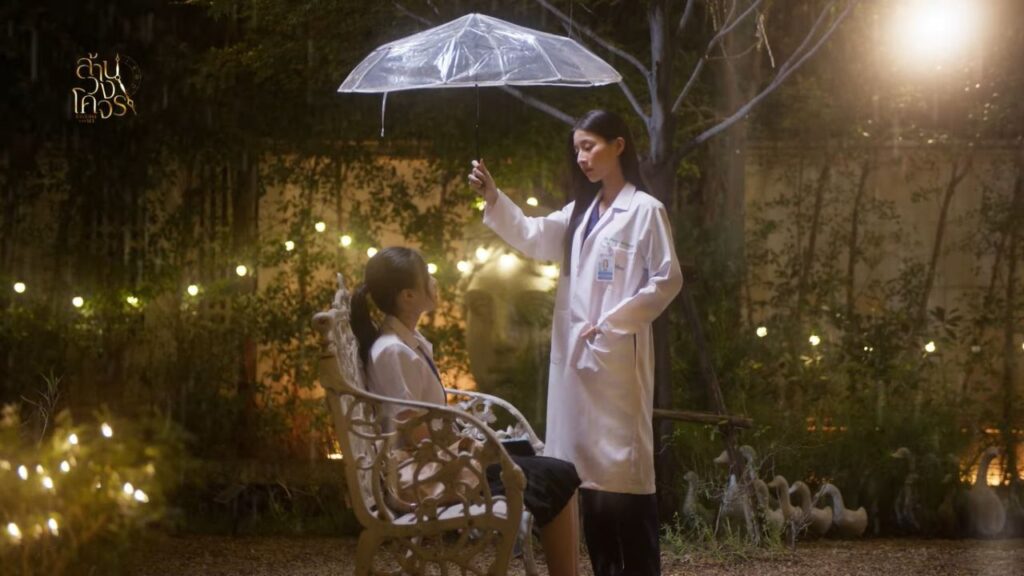Thai GL adaptations are everywhere, but are they elevating the genre or quietly holding it back? As more series pull from popular novels, fans are starting to question whether this trend fuels creativity or simply plays it safe.
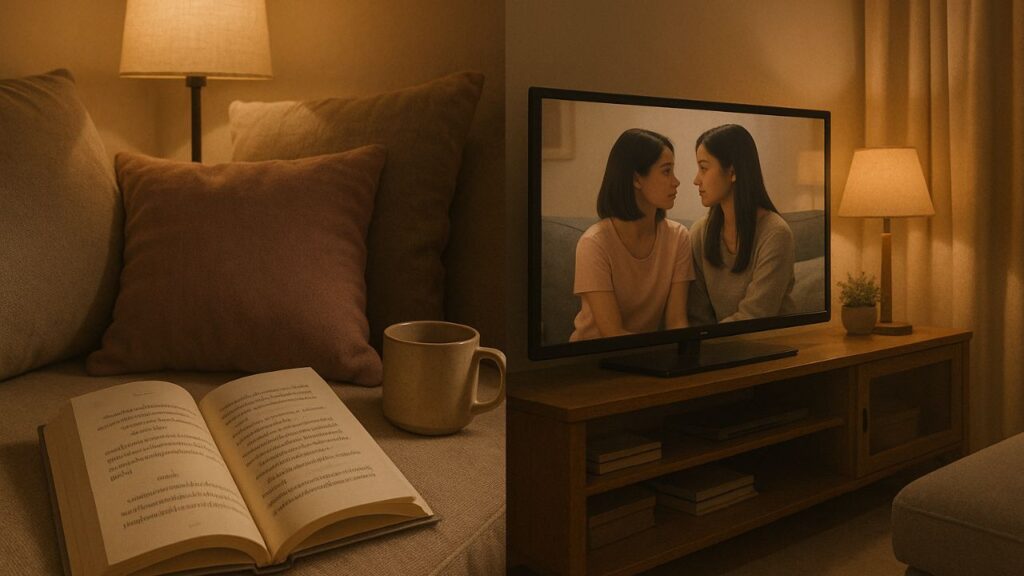
Thai GL adaptations have become a major part of Thailand’s entertainment industry. Many of the most beloved and talked-about series started not as scripts but as novels with loyal fans. This pattern raises an important question: why do producers often choose books over original stories?
In an industry with tight budgets, adaptations offer a clear advantage. Novels provide ready-made plots and a built-in audience eager to see favorite characters on screen. This fanbase helps reduce financial risk and gives producers more certainty in an unpredictable market.
Yet, this practical choice also invites deeper thought. Does relying on adaptations limit creativity? Or do these stories enrich the genre by turning beloved books into fresh visual experiences?
The truth probably lies somewhere in between. Adaptations bring comfort and familiarity. Original scripts offer freshness and surprise. They create new possibilities and push storytellers to take risks that could reshape the genre.
This article explores both sides. It looks at how adapted novels influence the Thai GL scene and asks if they act as a creative lifeline or a safety net. It also considers what originality might lose when it takes a backseat.
Understanding this trend helps us see the bigger picture. Are Thai GL series stuck in familiar patterns, or are they ready to explore bold new directions? The answer could shape the future of the genre.

Table of Contents
- Adaptations Are Safe, but Are They Too Safe?
- Original Thai GL Scripts: Rare, Risky, and Worth It
- Why Novels Dominate the GL Landscape
- Book vs Series: When the Screen Misses the Soul
- Reader or Viewer? How Each Format Shapes Character Depth
- When Adaptations Go Right: Series That Honored the Page
- Original Scripts Need Space to Thrive
- Reader Bias: Are We Too Attached to the Source?
- What Kind of Storytelling Do We Want to Support?
Adaptations Are Safe, but Are They Too Safe?
For many production companies, choosing a novel to adapt seems like the easiest choice. The characters are already created, the plot is set, and most importantly, a built-in audience is waiting for the adaptation. On paper, this strategy makes perfect sense.
However, when most series follow this path, creative risks begin to disappear. Thai GL adaptations have given us unforgettable couples and powerful stories. Yet, they also risk being limited by the original novels that made them popular.
Once a novel has told its story in detail, adapting it for the screen becomes a challenge. The show must stay true to the book while also offering something fresh. This balance is hard to find. If producers change too much, fans may react negatively. If they stay too close to the book, the show can feel repetitive or dull.
This leads to a bigger question. Are producers choosing adaptations because they truly offer better stories, or simply because they feel safer? Often, the answer leans toward safety.
Many adaptations leave little room for creativity. Writers try to fit entire novels into just eight episodes. As a result, pacing can feel rushed. Characters lose depth. Emotional moments become flat. What felt rich in the book ends up feeling incomplete on screen.
That said, some adaptations avoid this trap. They deepen the original story and add new layers of meaning. These successful adaptations show that it is possible to adapt with care and vision.
Still, when originality becomes rare, fans start to notice the patterns. If every story follows the same path, starts the same way, and ends with the same clichés, the genre can become predictable. Playing it safe might protect investments, but it rarely inspires new and exciting storytelling.
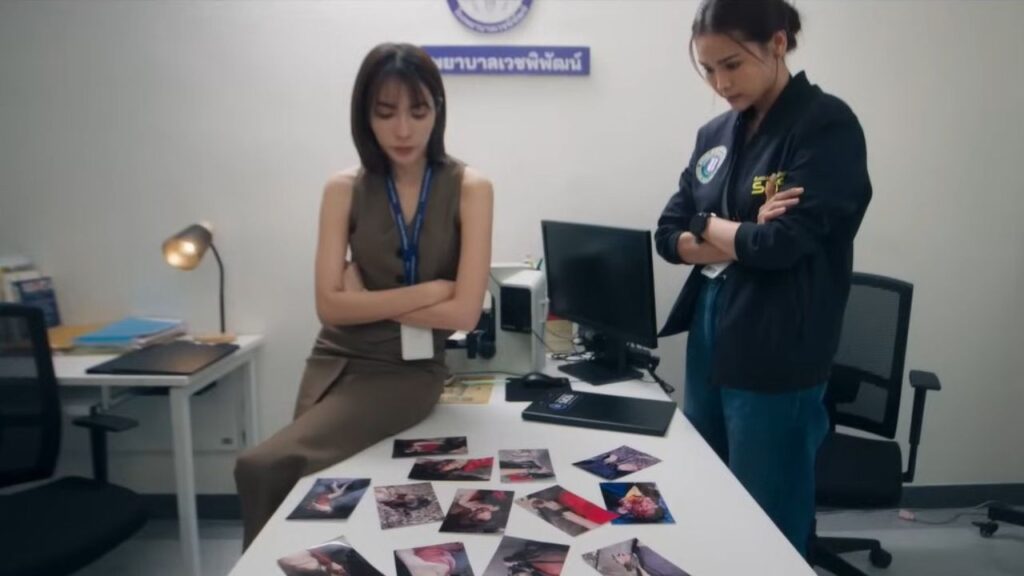
Original Thai GL Scripts: Rare, Risky, and Worth It
In a world mostly shaped by familiar source material, original scripts offer something producers don’t always focus on: the freedom to surprise.
Originals are rare in the Thai GL adaptations scene. But when they do appear, they leave a strong impression. Without a novel guiding the story, creators build everything from scratch. They control the tone, pacing, and character arcs without feeling pressure to meet readers’ expectations.
Some of the most refreshing series in recent years come from these brave choices. These shows do not follow what should or shouldn’t happen according to a book. Instead, they open space for cultural commentary, experimental storytelling, and characters who feel real and unpredictable.
While Thai GL adaptations provide safety and structure, original scripts take a different path. They carry more risk. Producers cannot count on a guaranteed audience or a built-in fanbase ready to watch each week.
Still, there is something powerful about the vulnerability of an untested story. These dramas respond directly to changing conversations about gender, sexuality, and representation.
Of course, not all original scripts succeed. Some struggle under their own ambitions. But even when they falter, they help move the genre forward. They remind us that Thai GL series are more than romance or formula. They can be places for creativity and imagination.
As the genre grows, originality becomes more important. The more we support these risk-takers, the more room we create for innovation, better representation, and fresh voices.
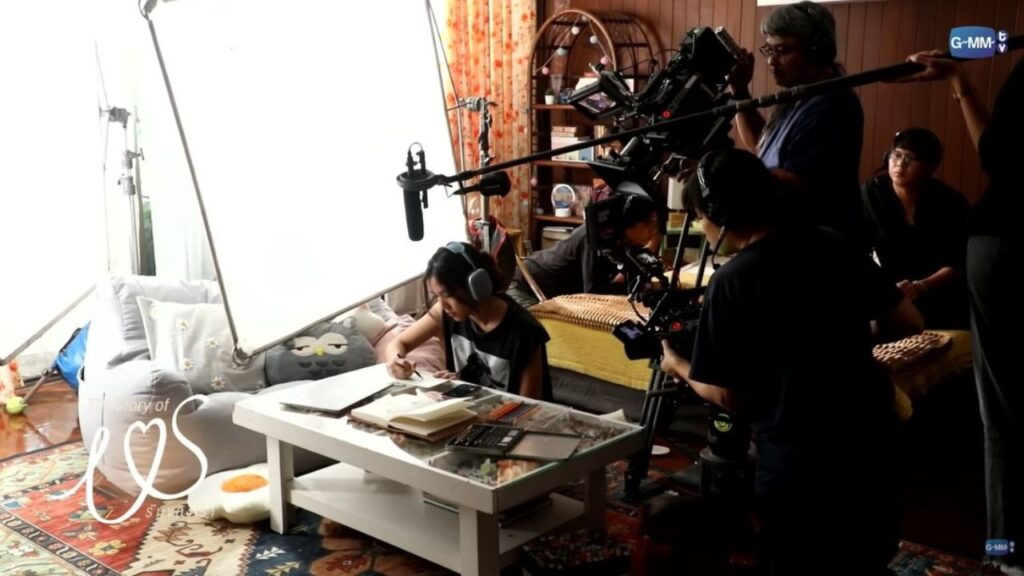
Why Novels Dominate the GL Landscape
In Thai drama production, speed and certainty often matter more than experimentation. This is a big reason why many Thai GL adaptations come from novels.
When producers need to create content that attracts viewers quickly, using a novel gives them a head start. The characters are already developed, the plot is set, and most importantly, the fanbase is ready.
This approach lowers creative risks a lot. Writers don’t have to spend months creating new storylines. Instead of inventing, they focus on adapting what already exists.
For production companies, this saves time and reduces costs. Making a new series from scratch means research, drafting, revising, and testing. Buying rights to a popular novel gives them a ready-made world.
Thai GL adaptations also serve another important role. They connect literature and screen, letting fans see their favorite characters come to life. For viewers who followed a couple’s journey in a book, watching it on screen deepens that connection. This emotional bond builds loyal viewers.
Still, relying too much on novels can make many shows feel similar. Even when the stories change, their structures, common themes, and pacing often seem familiar. This raises a bigger question: are Thai GL dramas shaped more by practical decisions than creative ones?
Right now, the novel-to-series route leads the industry. Understanding this helps us think carefully about what adaptations gain and what they might lose.

Book vs Series: When the Screen Misses the Soul
Fans of the source material often enter Thai GL series with high hopes. After all, falling in love with a story on the page makes seeing it come alive on screen feel like a dream come true. However, sometimes the opposite happens. The pacing rushes, the chemistry feels off, and the emotional depth that made the book unforgettable flattens in the process.
This disconnect presents one of the biggest challenges in Thai GL adaptations. Novels allow time to explore inner thoughts, long emotional arcs, and subtle relationship shifts. But when the story compresses into eight or ten episodes, sacrifices become inevitable. Producers cut key scenes, push aside supporting characters, and sometimes dilute the main plot. In doing so, they risk losing the essence that made the story special.
So what separates a good adaptation from a weak one? It involves more than just following the plot. Strong adaptations grasp the emotional core and reimagine it for the screen. They decide what to keep, what to reshape, and what the audience truly seeks.
At times, the screen even improves on the book. By trimming unnecessary moments or bringing visual life to scenes only hinted at in the text, the series can take the story to new places.
Yet when Thai GL adaptations fail to capture that spark, the truth becomes clear. A story’s soul does not copy itself; it must be deeply felt.
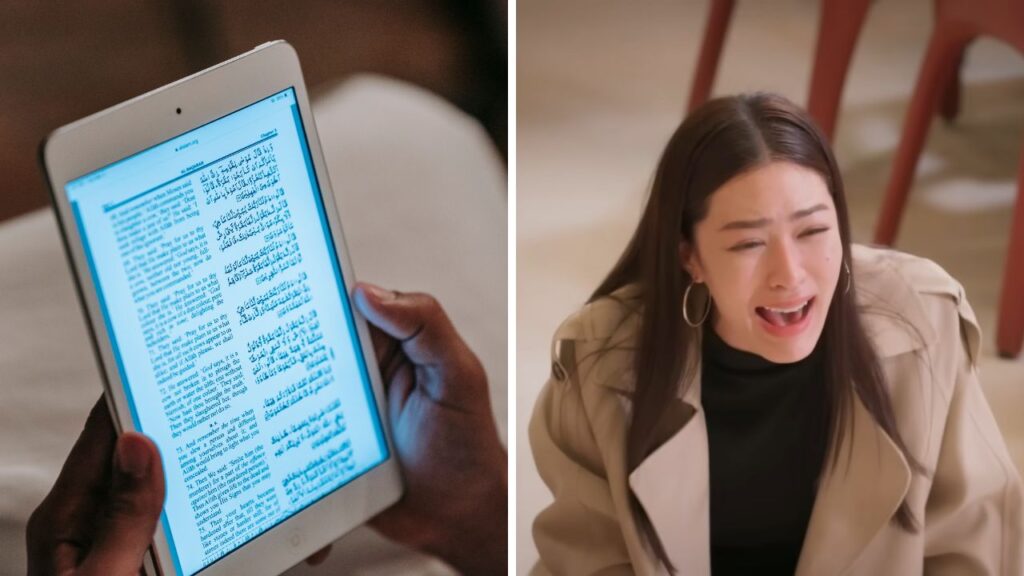
Reader or Viewer? How Each Format Shapes Character Depth
A novel gives you space to breathe. You watch tension grow slowly. You hear a character’s doubts and notice every silent change in their feelings. This close look builds strong emotions. You don’t just watch a love story; you feel it with the characters. That is where books really shine. They let you explore quiet moments and deep thoughts.
The screen, however, tells stories in a different way. Thai GL adaptations must show feelings without using narration. Instead of hearing a character’s inner voice, we see glances, silences, and pauses.
Actors have to show emotions through their expressions. This can be very powerful, especially when the acting reveals what words cannot. But it can also feel limited if the script does not leave room for subtlety.
This difference helps explain why some fans prefer one format over the other. Reading a character’s thoughts in a book can make them feel more complex. Watching those feelings acted out on screen can give a raw, immediate impact. Each form creates its own kind of closeness.
The big challenge for Thai GL adaptations is finding the right balance. How can a show keep the deep emotions of the original story without turning into a narrated book? How can it make viewers feel what readers once imagined?
When done well, the screen lifts the story higher. But when it focuses too much on action and misses the character’s feelings, something is lost. Many adaptations struggle in that gap.

When Adaptations Go Right: Series That Honored the Page
Some Thai GL adaptations do more than just copy scenes from a book. They bring new life to beloved stories by adding emotional depth and using visual language. This helps strengthen what readers once imagined. These adaptations show why telling stories across different media can be so powerful.
Take Pluto, for example. The series captures the original novel’s layered emotions and adds to them through cinematography and music. It uses silence well, frames intimate moments carefully, and keeps dialogue restrained. This approach mirrors the novel’s mood without over-explaining. For fans who read the book first, the show feels like a continuation of a feeling, not just a retelling of the plot.
The Loyal Pin also stands out. It stays true to the 1950s setting while boosting the romance with costume, lighting, and slow pacing. The series doesn’t just follow the book. It understands the emotional world behind the story. The characters show the same tenderness readers expect, but the actresses add new layers, giving that tenderness a face and a heartbeat.
This is the goal for Thai GL adaptations. The story does not need to match the book exactly. What matters most is keeping the emotional core alive. A good adaptation knows what to keep and what to change. When it succeeds, it builds a bridge between two ways of storytelling and makes the narrative feel even fuller.

Original Scripts Need Space to Thrive
In a market mostly filled with adaptations, original scripts feel like rare gems. Yet, they do exist. Quietly, these stories challenge expectations and slowly expand what Thai GL dramas can become. From indie creators to small studios, new writers offer narratives that feel more personal, grounded, and sometimes even riskier than usual.
These creators do not have a built-in audience or an existing plot. They build everything from scratch: characters, conflicts, tone, and world. This freedom lets them explore themes less common in traditional Thai GL adaptations. Topics like queer identity, political messages, or experimental storytelling formats appear more often. Without a blueprint to follow, original scripts bring surprise and depth.
Still, the path to production remains tough. Original stories need more time, bigger budgets, and trust from investors. No guaranteed fans wait to watch. In an industry focused on financial security, this uncertainty can stop projects before they begin.
So, what would help original content grow? Funding plays a role, but an even more important factor might be a shift in mindset. Creating space for trial and error is essential. Supporting creators who want to tell queer stories that have not been told yet can make a big difference. Authenticity should guide production rather than simply chasing algorithmic success.
When the industry finally gives original scripts as much attention and care as it gives Thai GL adaptations, the results could change the genre. This shift might be exactly what the community needs: more voices, greater risks, and deeper truth.
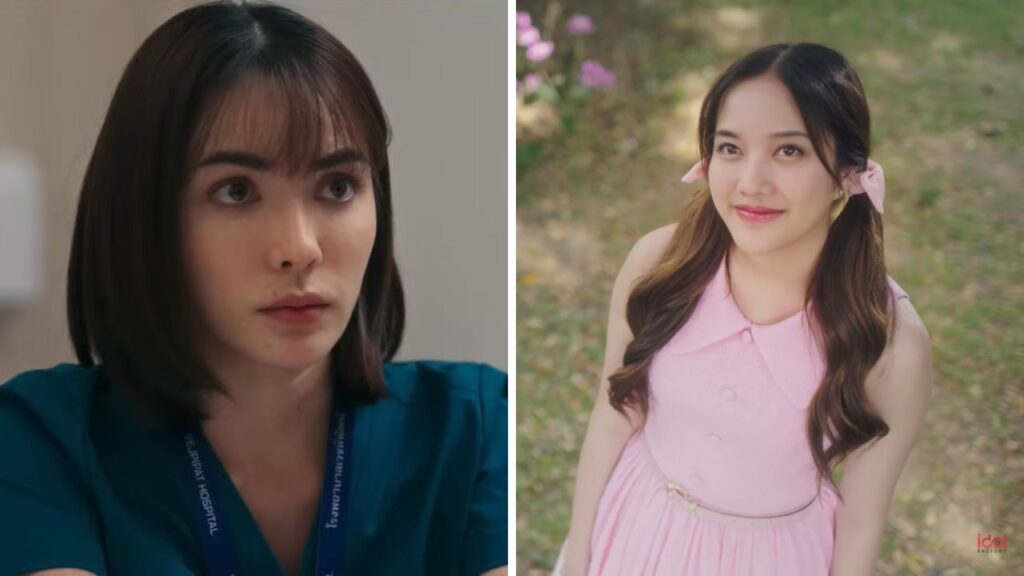
Reader Bias: Are We Too Attached to the Source?
Not every critique of a series comes from bad writing or lazy production. Sometimes, the disappointment starts with us. When we enter a show already knowing the whole plot, it becomes harder to accept a different version, even if it is well done.
Fans who feel deeply connected to a novel often expect every scene, line, and emotion to play out exactly as it did on the page. But screen adaptations tell stories differently. They need space for visual storytelling, timing, actor choices, and platform limits. So when Thai GL adaptations move scenes around, change dialogue, or adjust character dynamics, it is not always a failure. Often, it is an artistic choice.
Still, expectations affect how we see the story. If pacing slows or a favorite moment disappears, it can feel personal. We might say the show “missed the point” when, in reality, it simply reimagined it. Reader bias turns the adaptation into a comparison instead of letting it stand on its own.
This does not mean we should lower our standards. Fans deserve quality storytelling. But it does mean we need to recognize the difference between a flawed adaptation and a different interpretation. Both can exist, and both can have value.
When watching Thai GL adaptations, the real challenge may be letting go of what we expect and staying open to what could be. Sometimes, the story we did not expect is the one that stays with us the longest.

What Kind of Storytelling Do We Want to Support?
Every time we stream, share, or talk about a series, we vote for the kinds of stories we want to see more often. It might seem small, but our choices send a clear message. In the case of Thai GL adaptations, that message often says: safe sells.
There is nothing wrong with enjoying a familiar story brought to life. Adaptations offer comfort and excitement. They let us see beloved characters move and speak. They turn moments we once imagined into something real. For production teams, adaptations provide a stable base to work from. This stability is especially important as the market grows and queer storytelling still faces many challenges.
However, comfort has its limits.
Original content carries risk, but it is also where growth happens. These stories create room for new characters, fresh formats, and expressions of queerness that don’t fit into existing molds. Supporting original works means backing creators who build stories without a safety net. It means trusting that their voices matter, even without a built-in fanbase.
Thai GL adaptations have laid a strong foundation by attracting audiences, building industry confidence, and increasing visibility. However, the moment has come to demand more. Variety must grow alongside creative freedom. We also need space to welcome stories that have yet to be told.
So next time you pick what to watch, pause for a moment and ask yourself: Am I playing it safe, or am I helping to shape the future of Thai GL with my choice?
